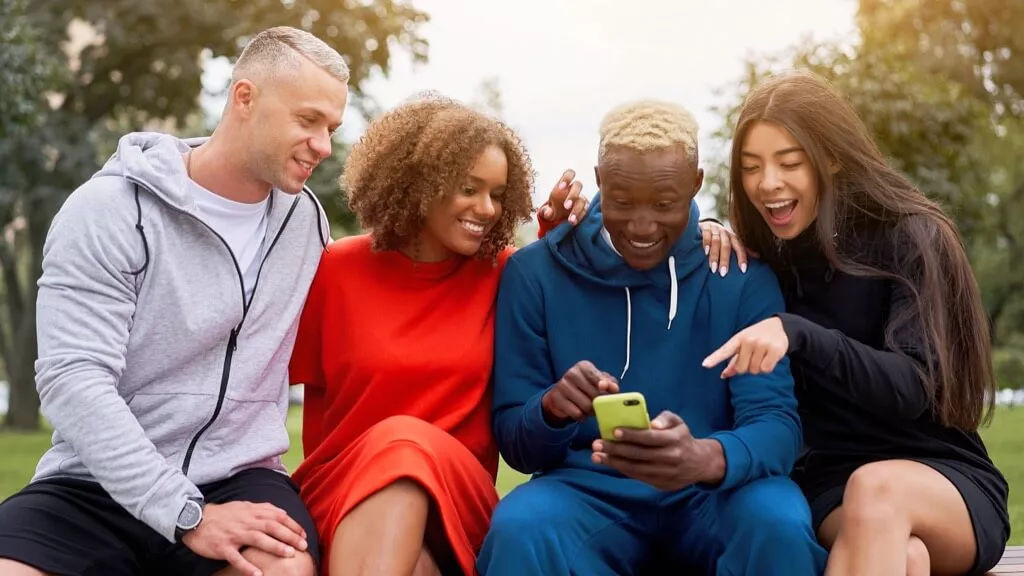Across the globe, over 300 million hopeful romantics are turning to dating apps, seeking connections and love. For some, digital platforms do indeed foster real-life fairy tales. But, occasionally, these stories veer off into territories that leave users questioning the authenticity of their partners.
If you’ve ever felt that your significant other isn’t quite the person they portrayed online, you might’ve encountered what experts term a “vulnerable narcissist.”
Navigating the Digital Romance Terrain
It’s estimated that by 2020, almost half of romantic partnerships will originate online. But, while the digital age has simplified the matchmaking process, it’s also brought along its unique set of challenges.
Phenomena like ghosting and breadcrumbing, where one party leads another on without the intention of a real relationship, have become rampant. Such behaviors can leave emotional scars, diminishing one’s self-worth and happiness. To add complexity, studies indicate up to 81% of online daters misrepresent themselves to some extent. While a flattering photo is fairly innocuous, some disguises run deeper, masking genuine personalities to allure potential partners.
Peeling Back the Layers of Online Persona
In our research, we delved into the intricate relationship between certain personality traits and online authenticity. Our focus: vulnerable narcissism. While narcissism generally encompasses a spectrum of behaviors, at its extreme, it manifests as an overpowering need for validation and an inflated sense of self-worth.
Vulnerable narcissists, however, pair these traits with intense emotional sensitivity, projecting a grandiosity that veils their underlying feelings of inadequacy.
Gathering insights from 316 online daters, we assessed not just vulnerable narcissism but also other “dark triad” traits like grandiose narcissism, Machiavellianism, and psychopathy. We then measured the discrepancy between their genuine selves and their online personas.
What the Data Unveiled
Our findings illuminated a strong link between vulnerable narcissism and inauthentic self-representation. In simpler terms, those scoring higher in vulnerable narcissism traits were more likely to project a fake online persona. Additionally, these individuals were more prone to antisocial dating behaviors like ghosting.
Yet, it’s essential to approach these results with nuance; not everyone who ghosts is necessarily a vulnerable narcissist. There are valid reasons for ghosting, like self-preservation. But if you’ve been “zombied” – where a ‘ghost’ reappears after a prolonged absence without explanation – it might be wise to reconsider engaging further.
Signs You’re Dating a Vulnerable Narcissist
It can be challenging to identify a vulnerable narcissist in the early stages of romance, as they are adept at projecting a façade. However, with time, certain telltale signs become evident:
- Complex Personality Cocktail: Look out for a combination of introversion, neuroticism, dishonesty, and a lack of humility.
- Intense “Love Bombing”: Vulnerable narcissists might overwhelm you with affection early on to make you feel indebted and dependent.
- Subsequent Devaluation: After the intense affection comes the emotional turbulence – gaslighting, stonewalling, and sudden fits of anger.
- Hyper-Sensitivity to Criticism: A hallmark trait, any form of critique, even if constructive, can be perceived as a personal attack, leading to them being defensive.
Caught in the Narcissistic Web?
Dating a vulnerable narcissist can expose you to psychological and emotional turmoil. The after-effects of such relationships can endure, sometimes manifesting as post-traumatic stress disorder. If you’re concerned about your situation, it’s crucial to seek professional assistance. They can provide the guidance you need, whether it’s navigating the relationship or seeking a safe exit.
Steps to Understand Your Partner’s Behavior
- Educate Yourself: Begin by familiarizing yourself with the traits and behaviors associated with narcissism. The more you know, the better equipped you’ll be to handle situations.
- Reflect on Your Feelings: Understand your feelings and needs. If you constantly feel undervalued or emotionally exhausted, it’s crucial to acknowledge this.
- Set Clear Boundaries: Remember, it’s okay to set limits on behaviors you find unacceptable. Make sure your partner is aware of these boundaries.
Tips to Safeguard Your Emotional Well-being
- Prioritize Self-care: Engage in activities that nurture your soul and well-being. This can range from reading to taking a spa day or spending time with loved ones.
- Seek Counseling: Consider individual or couples therapy. Professionals can provide coping strategies and insights to better manage the relationship.
- Stay Connected with Trusted Friends: Keeping close ties with friends and family can offer the support and external perspective you might need.
- Avoid the Blame Game: Remember, narcissists often deflect blame. Recognize this behavior for what it is and don’t internalize the blame they might place on you.
FAQs on Dating a Narcissist
How can I communicate my feelings to a narcissistic partner without triggering a backlash?
Approach the conversation with empathy and avoid direct accusations. Use “I” statements, like “I feel” or “I need”, instead of pointing fingers.
Is it always negative to be in a relationship with someone who has narcissistic traits?
Not necessarily. Some individuals with narcissistic traits can still be caring and committed partners. It’s the toxic, hurtful behaviors that you need to watch out for.
What should I do if I feel overwhelmed in the relationship?
Seek professional guidance. Therapists or counselors can offer invaluable tools and perspectives. Remember, your well-being should always be a priority.
Are there signs that it’s time to end the relationship?
Consistent feelings of distress, unhappiness, or being undervalued are indicators. If attempts to communicate and resolve issues fail repeatedly, it might be time to reassess the relationship’s health.




